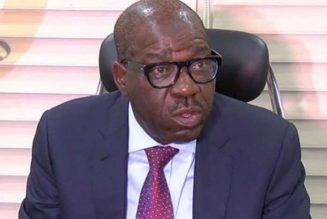
Local investors have gained prominence at the Nairobi Securities Exchange (NSE) over the last three months, reflecting reduced activity by their offshore counterparts in the market even as investment conditions improved abroad.
Market data shows that local investors have accounted for 59 percent of all traded turnover in the period, and foreigners 41 percent, reversing the trend seen in the first and second quarters of the year, when foreigners accounted for 60.3 percent and 57.3 percent of trades at the NSE.
The pullback by foreigners, analysts say, indicates reduced selling activity after the resolution of the dollar supply woes that affected the market in the first quarter, and the successful refinancing of the 2014 Eurobond which has raised jitters about the ability of the government to repay its debt.
The reduced overall turnover at the NSE in the period indicates that local investors largely maintained their activity levels, rather than stepping into the breach left by foreigners.
Traded turnover in the third quarter fell to Sh17.6 billion from Sh28.4 billion in the second quarter, and Sh19.1 billion in the first quarter of the year.
“The shift mainly shows that it is foreign investors who have reduced their activity, given that the overall turnover has also come down,” said Wesley Manambo, an analyst at Standard Investment Bank.
“The NSE is also having to wait a bit longer for a significant growth in foreign inflows after the US rate cut, given that investors tend to give priority to emerging markets before cascading down to frontier markets like Kenya.”
He added that the expected Fed rate cuts in November and December will likely boost the NSE’s foreign inflows in the new year, when portfolio managers in the West accelerate their capital redistribution to smaller markets.
Foreign investors, who mainly trade in the large blue chip stocks that drive the market, cut their volume of net exits from the NSE to Sh18.6 million in the nine months to September from Sh18.95 billion in the corresponding period in 2023.
The NSE was able to retain foreign capital after the shilling appreciated by 21 percent versus the dollar in the period, reversing the exchange losses suffered by foreign investors the previous year when the currency was the worst performing in Africa.
In addition to these forex losses, difficulties in repatriating profits from Kenya in 2023 and the early months of 2024 due to a dollar supply crisis, had seen foreign investors shy away from buying into the equities market.
The dollar supply hitch also saw Morgan Stanley Capital International (MSCI) in August 2022 freeze its reviews of its Kenyan index between August 2022 and May this year—stopping the introduction or removal of constituent companies and adjustments on their weighting within the closely watched index.
After the lifting of the review freeze in May, the MSCI added KCB and Co-operative Bank to its frontier markets index, joining Safaricom, Equity Group, and EABL.
It also added BAT Kenya, KenGen, Kenya Re, and DTB Group to its frontier markets small cap index, giving these firms greater visibility among foreign investors.









